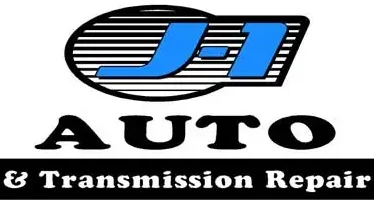Towing services Breakdown towing assistance Engine failure towing Seabrook towing and recovery vehicle maintenance
Towing Services
Filter Replacements
Regular maintenance is key to ensuring your vehicle runs smoothly and efficiently. One critical component of vehicle maintenance that often goes overlooked is the replacement of filters. Filters, such as air, oil, fuel, and cabin filters, play an essential role in keeping your engine and other parts running efficiently. In this blog post, we will dive into the importance of Filter Replacements, the different types of filters in your vehicle, and why timely replacements can save you money in the long run.
What Are Vehicle Filters?
Filters in vehicles are designed to protect vital systems from harmful contaminants. From preventing dirt from entering the engine to ensuring clean air inside your cabin, filters are crucial for both performance and comfort. Regular filter replacements help maintain engine efficiency, improve fuel economy, and protect critical vehicle systems from damage.
Types of Vehicle Filters
Here are the most common filters in your vehicle and their roles:
-
Air Filter: The air filter prevents dirt, dust, and debris from entering the engine, ensuring the engine gets clean air for combustion. A clogged air filter can reduce fuel efficiency and engine performance.
-
Oil Filter: The oil filter removes contaminants from the engine oil, ensuring it stays clean and helps lubricate the engine parts properly. A dirty oil filter can cause engine wear and reduce the effectiveness of the oil.
-
Fuel Filter: The fuel filter keeps debris, dirt, and rust from entering the engine’s fuel system. A clogged fuel filter can lead to poor engine performance or even cause the engine to stall.
-
Cabin Air Filter: The cabin air filter ensures the air inside your vehicle remains clean by filtering out pollutants, allergens, and dust from entering through the air conditioning or heating system.
Why Are Filter Replacements Important?
Regular Filter Replacements are essential to keep your vehicle running at its best. Here’s why:
-
Engine Protection: Clean filters ensure that your engine receives the clean air and oil it needs for smooth operation. Clogged filters can lead to engine misfires, poor fuel efficiency, and even engine damage.
-
Better Fuel Efficiency: A clean air filter allows the engine to breathe properly, leading to better combustion and improved fuel efficiency. A dirty filter forces the engine to work harder, using more fuel.
-
Improved Performance: Replacing old filters can restore your vehicle’s performance. This includes smoother acceleration, better power, and overall improved responsiveness.
-
Cost Savings: Regular filter replacements are an affordable form of preventive maintenance. Ignoring filter changes can lead to more serious (and expensive) issues like engine damage or reduced fuel efficiency.
-
Cleaner Air: For your comfort and health, replacing the cabin air filter ensures the air inside your vehicle remains clean and free from pollutants. It also improves the effectiveness of your HVAC system.
How Often Should Filters Be Replaced?
The frequency of Filter Replacements depends on the type of filter and your vehicle’s manufacturer recommendations. However, here are general guidelines:
-
Air Filter: Replace every 12,000 to 15,000 miles, or more frequently if you drive in dusty or polluted areas.
-
Oil Filter: Replace every time you change your oil (usually every 3,000 to 5,000 miles).
-
Fuel Filter: Replace every 30,000 to 40,000 miles, though some modern vehicles have lifetime fuel filters.
-
Cabin Air Filter: Replace every 15,000 to 25,000 miles, or more often if you notice reduced air quality or odor in the cabin.
Signs It’s Time for a Filter Replacement
Pay attention to these signs that indicate it’s time for a Filter Replacement:
-
Decreased Performance: If your vehicle is sluggish or struggles to accelerate, it could be due to a clogged air or fuel filter.
-
Strange Noises or Smells: Unusual engine noises or foul smells from the HVAC system can signal that your filters are clogged and need replacing.
-
Check Engine Light: A warning light may indicate that a filter is dirty or damaged and needs to be replaced.
-
Poor Fuel Economy: If your gas mileage has dropped without any other explanation, it could be due to a dirty air or fuel filter.
Choosing the Right Filter
Not all filters are created equal. When replacing filters, make sure to choose the right ones for your vehicle’s make and model. Consult your vehicle’s manual or speak with a trusted mechanic to ensure you’re using the correct filter for optimal performance.
Conclusion
Filter Replacements are a simple yet crucial aspect of vehicle maintenance. Regularly replacing your air, oil, fuel, and cabin filters can extend the life of your vehicle, improve fuel efficiency, and keep your engine running smoothly. By paying attention to your vehicle’s needs and replacing filters at the recommended intervals, you’ll save on repairs and ensure your car stays in peak condition for years to come.
TOTAL PEACE OF MIND
Serving Seabrook, Beaufort, and Surrounding Areas
We provide expert auto repair and maintenance services in Seabrook and surrounding areas to keep your car running at its best. Our skilled technicians ensure top performance, quick fixes, and full repairs with exceptional service.
Local Mechanic
After Service Support
Complete Repair
